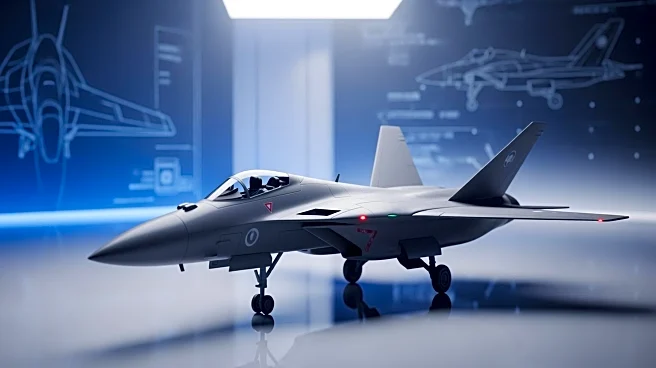What's Happening?
Brig. Gen. Phillipe Suhr of the French Air Force has addressed concerns regarding the Future Combat Air System (FCAS) program, emphasizing that reports of infighting among France, Germany, and Spain are exaggerated. The FCAS program, initiated in 2017,
aims to develop a sixth-generation fighter jet to replace existing aircraft by 2040. Despite disagreements over project control, particularly between French contractor Dassault and Airbus, Suhr reassured that all parties remain committed to the program. He highlighted the importance of delivering the new fighter jets in the 2040s and downplayed claims that Dassault seeks an 80% stake in the project.
Why It's Important?
The FCAS program is crucial for the participating countries as it represents a significant advancement in military technology and defense capabilities. Successful collaboration could enhance European defense autonomy and reduce reliance on external partners. The program's progress is vital for maintaining technological sovereignty, which is increasingly important in a rapidly changing global security environment. The outcome of these negotiations could impact the defense industry, influencing job creation, technological innovation, and international defense partnerships.
What's Next?
As the FCAS program continues, stakeholders will need to resolve internal disputes to ensure timely progress. The focus will be on balancing national interests with collaborative efforts to achieve technological and industrial sovereignty. The parallel development of the GCAP fighter by Italy, the UK, and Japan may serve as a model for successful international collaboration. Future discussions will likely address the distribution of work and control within the FCAS program, aiming to align the interests of all parties involved.
Beyond the Headlines
The FCAS program highlights the broader challenge of balancing national sovereignty with international collaboration in defense projects. As countries strive to maintain control over critical technologies, the program underscores the importance of strategic partnerships in achieving shared defense goals. The development of sixth-generation fighters could redefine military capabilities, influencing global power dynamics and defense strategies.

















